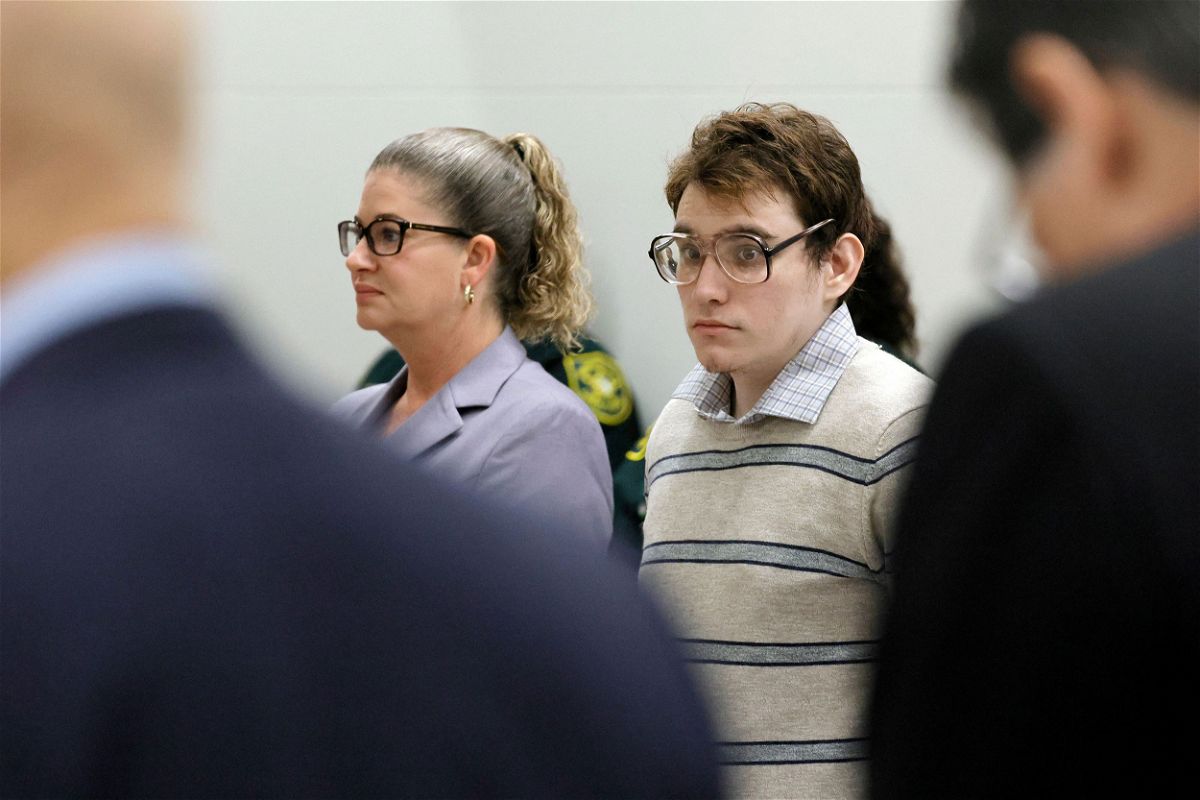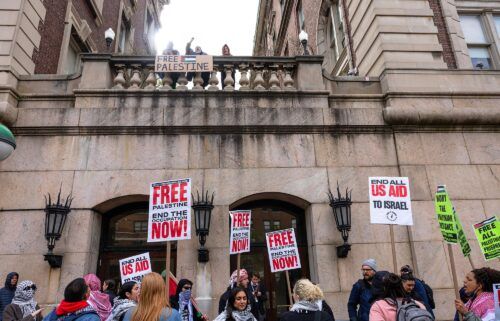Jurors begin deliberations over death penalty for Parkland shooter

Originally Published: 12 OCT 22 00:08 ET
Updated: 12 OCT 22 13:29 ET
By Dakin Andone, Amir Vera and Alta Spells, CNN
(CNN) -- A 12-person jury in the sentencing trial of the Parkland, Florida, school shooter has begun deliberating over whether to recommend he be sentenced to death or life in prison.
The jury, which received its instructions from Broward Circuit Judge Elizabeth Scherer in court Wednesday morning, about six months after jury selection first began, will be sequestered during deliberations.
For jurors to recommend Nikolas Cruz get a death sentence, their decision must be unanimous. Otherwise, he will receive life in prison without the possibility of parole. If the jury does recommend death, the final decision rests with Scherer, who could choose to follow the recommendation or sentence Cruz to life.
Cruz has pleaded guilty to 17 counts of murder and 17 counts of attempted murder in connection with the February 2018 shooting at Marjory Stoneman Douglas High School, in which 14 students and three school staff members were killed. The massacre is the deadliest mass shooting at a US high school. In the years since the shooting, survivors and victims' families became very outspoken on gun control.
Because Cruz pleaded guilty to all counts, the trial phase was skipped and the court went directly to the sentencing phase.
In closing arguments Tuesday, prosecutors argued Cruz's decision to commit the shooting was premeditated and calculated, while Cruz's defense attorneys offered evidence of a lifetime of struggles at home and in school.
"What he wanted to do, what his plan was and what he did, was to murder children at school and their caretakers," lead prosecutor Michael Satz said Tuesday. "The appropriate sentence for Nikolas Cruz is the death penalty," he concluded.
However, defense attorney Melisa McNeill said Cruz "is a brain damaged, broken, mentally ill person, through no fault of his own." She pointed to the defense's claim that Cruz's mother used drugs and drank alcohol while his mother was pregnant with him, saying he was "poisoned" in her womb.
"And in a civilized humane society, do we kill brain damaged, mentally ill, broken people?" McNeill asked Tuesday. "Do we? I hope not."
What the jury will consider
To recommend death, jurors must unanimously agree on several things: First, that the state proved beyond a reasonable doubt there was at least one aggravating factor -- a reason why Cruz should be put to death, like whether the killing was especially heinous, atrocious or cruel -- and that the factor is sufficient to warrant a possible death sentence.
The jurors would then need to unanimously agree that the aggravators outweigh mitigating circumstances -- reasons Cruz should not receive the death penalty, such as the defense's claim he has neurological or intellectual deficits. Finally, if the jury agrees to those things, they still would need to unanimously find that Cruz should be put to death.
Jurors will consider these questions for each of the 17 murder counts. Cruz would serve life in prison if the jury cannot unanimously agree on death for any of the counts.
Penalty trial lasted months
Jury selection for the lengthy trial began in early April, with prosecutors' opening statements for the death penalty trial taking place in July. Throughout the last three months, prosecutors and defense attorneys have presented evidence of aggravating factors and mitigating circumstances.
As part of the prosecution's case, family members of the victims were given the opportunity over the summer to take the stand and offer raw, emotional testimony about how Cruz's actions had forever changed their lives. At one point, even members of Cruz's defense team were brought to tears.
The defense's case came to an unexpected halt last month when -- having called just 26 of 80 planned witnesses -- public defenders assigned to represent Cruz abruptly rested, leading the judge to admonish the team for what she said was unprofessionalism, resulting in a courtroom squabble between her and the defense (the jury was not present).
Defense attorneys would later file a motion to disqualify the judge for her comments, arguing in part they suggested the judge was not impartial and Cruz's right to a fair trial had been undermined. Prosecutors disagreed, writing "judicial comments, even of a critical or hostile nature, are not grounds for disqualification."
Scherer ultimately denied the motion.
The-CNN-Wire
™ & © 2022 Cable News Network, Inc., a Warner Bros. Discovery Company. All rights reserved.


